
views
Mainstream Hindi cinema has traditionally been leery of political themes. It’s gotten used to nasty backlash and a sharp bite in the butt every time it has dared to break with this. In recent times, Vishal Bharadwaj’s Haidar is a rare exception. But releasing as it did in October 2014, a few months after the general elections had handed a majority to the BJP and in the aftermath of a bruising, polarising political discourse, it may have been a slip.
We are picking up a new trend today of the fictionalised recreation of recent events and biographies, but the latter tend to be hagiographies and the former are often a cinematic endorsement of the prevailing political narrative.
Which makes Gully Boy so important. A film that’s not political enough or problematic politically, for some political scientists and academicians, and yet a sharper reflection on the social and political zeitgeist than anything I have seen in recent times.
In an industry where Yusuf Khan had to become Dilip Kumar; Aamir, Shah Rukh and Salman are still circumscribed between Raj, Rahul and Prem or Bajrangi Bhaijan; and when the Muslim community has been targeted with hate crime or harassed and intimidated in a routine manner, to choose to tell Murad’s story is a bold choice. The clinical depiction of how class has reset caste boundaries and religion cages us in makes Gully Boy a sharp jab to the conscience.
The fact that all this is playing out in a city that was supposed to smash these barriers but where jobs are now hard to come by and barely suited to the aspirations of the educated youth is a truth that sticks in your throat.
Bombay or Mumbai, however you choose to call it, was not meant to be that city in which people couldn’t lend each other a shoulder to cry on. See that heart-breaking sequence where Murad is driving home his employer’s sobbing daughter and he can’t utter a word to comfort her and you realise how the free run property developers have had has shattered the soul of this city. I am not even getting into the character of Safina that’s been crafted and performed with such joyous relish.
Of course Zoya’s film is a blockbuster hit and that’s because she doesn’t spell any of this out like a didactic journalist must. Given how deftly it’s told and its anodyne outcome, some people may choose to miss the politics. And those who see it could have differences with how key dilemmas are resolved, but then we do what we can and know. In the final analysis here’s the thing, art can transcend barriers when artistes stand up to be counted. And that’s what Zoya Akhtar has just done with Gully Boy.
Here are excerpts from a conversation with her on my weekly show Off Centre on CNN-News18:
What is it that attracted you to the theme because it is a film about class in India… about this yawning inequality between the 1%, who it seems have 22% of India's wealth. What is it that drew you to this film?
At the onset, it was the music, it was the sound. I love hip-hop. I listen to quite a bit of rap, but I have always engaged with American artists and those in the UK. But, you know that there has been rap and hip-hop in the mainstream in India, but it's not the music that was personal to me. I have enjoyed it, I have danced to it, I like it when it’s in a movie, but it's not personal to me. It is not something I will put on my iPod or my phone and listen to at home, no.
I was editing Dil Dhadakne Do and the editor who was also a musician, Anand Subbayya, showed me this YouTube video of a track called Aafat by a musician called Naezy. He was 21-years-old from Mumbai and had an incredible flow, like he was completely legit. He had a flow and he had a writing style that was really unique and he was singing about his truth, his reality, his life, his environment.
So music was the entry point?
It was the entry point.
How did it become about class in India today?
Because that is what they are speaking about. Thematically, that is what they are mainly speaking about.
The hip-hop, the rap that you discovered that the Dharavi boys were doing…
Yeah. I mean they have many themes in music and they are all different artistes. But like an over-arching theme was this. And not just that, it’s also a massive divide in our country. It is really naked in our city. And the beauty of art of any form is something that can cut through any divide. And this boy, whom I would never ever have met in my life, there was no space in which our paths would have crossed, puts something out on an iPad which reaches me and suddenly connects me to him in a way that I haven't felt in a while.
That was the power of his art...
That is the power of art. That is it, it just cuts through any barrier, any wall, any caste, class, creed, anything. Where they come from and what is holding them back is actually this. So if you have to make a film about artistes which is that authentic, you just have to be honest.
How would you react if I said that this is a deeply political film?
If you ask me, all films are deeply political. I think if you're putting anything out there, you're putting your consciousness out there. Even if it's an all-round entertainer, I will get your views on women, I will get your views on a community, I will see how you feel about homosexuality, how you treat animals… I can look at anybody's work and I can see their leanings. So I think all work is political, people should realise that. They are putting their consciousness out there and people are reading them.
In the current political context, you have used snatches of the remixed version of Kanhaiya Kumar's famous speech ‘Azadi’. Where do you stand on what he represents?
Azadi is not Kanhaiya's. Kanhaiya is one of the people who has used it. It started with Kamla Bhasin who actually got it from Pakistan. It was used for women's rights. Why can't we say it’s Kamla Bhasin's? People are using it all over. They have used it for women's rights, they have used it against patriarchy, against casteism. And they have used this against military rule. Azadi is a very strong word. It means freedom. It is mine as much as yours, as much as it is Kanhaiya's or Kamla Bhasin's.
You chose Javed Akhtar to write the lyrics for Murad, your protagonist.
He has not written all the lyrics. He has written the poems, he has written all the poems. Because the character is somebody who is a poet, and he likes hop-hop music, but he hasn't joined those dots. I wanted his voice to be different. To be different from say Shakespeare, to be different from another artiste. He had to have a very distinct flavour. When he had to convert that poem into the rap track which became Doori, that became a collaboration of my dad and Divine, which I think was just divine actually. So yeah it was just… I needed another voice and then I needed that thought to convert to rap.
You have a lot of kindness in your film you know. Where is that coming from?
It's coming from my need for it. I think people just need to be kinder to each other. I mean it's just…
It's just been hard…
It's hard. For anyone. I'm not even on social media, you know my friends, the kind of stuff they get told, the way they're abused, you're just like ‘who's doing this?’ You're doing this in your home and saying mean things to people you don't know. Where is this coming from? I feel there's a sense of… you just need a little kindness out there.
How are you looking at your body of work so far?
My little body.
Your little body of work but what a lovely body of work. When you're looking at it, when you see it from the perch of the Gully Boy release, how are you assessing where you’re coming from both in terms of craft and in terms of what you’re saying, the stories you're putting up?
I want to tell all kinds of stories. I want to work in many, many genres that I like watching and that appeal to me. I want to eventually be able to look at a movie and be like – that's perfect. My movie. I want to look at my movie and be like ‘I wouldn't change a thing’. If I have to tell you the film I've come closest to, where I've said ‘I've gone out to do this and I did this’ was Lust Stories. The closest I came to. But I want to do all kinds of stories, I want to do work all over the globe eventually, but for my personal growth, I want that one film that I can look at and be like 'I won’t change a thing'.
You talked about working all over the globe. You've just released Made In Heaven, which is going to go all over the globe on OTT, on video streaming on Amazon Prime. Is it greatly unshackling or liberating, what video streaming is offering you as a story teller? In terms of the fact that it's freer, the fact that it gives you a global audience and all of that.
Yeah, it's very different. There are different things that come with different formats.
Does it energise you?
Of course. See the thing is, you have ideas as a storyteller that will lend itself to a short film. You have ideas that you want to make features with. You know you want that theatrical release and then there are ideas that are just good for a long format, characters that need to develop, sagas, episodic content which Made In Heaven is on a level.
You can take an idea now and you can be like 'I can do this with it or that with it', so your options have opened up and that's amazing. Then you have a platform that works with you, that is global, that's in 200 countries… territories. You don't have to deal with censorship beyond a point. Not that you can go crazy, I mean we are responsible filmmakers. So you will definitely do what is honest to the story and makes the person feel what they need to feel for that particular situation. You don't have the pressure of a box office, you don't have the 'what was your opening weekend like’ and somebody can find it three years later, that's the beauty.
And the budgets are good so it's not as if you're scrounging around to do something you really want to do.
Yeah, it's just another place for me to do what I love doing, so it's amazing.
So it's a good time and place to be Zoya Akhtar?
It's a very good time.
(Catch the full interview at Off Centre with Anuradha SenGupta)












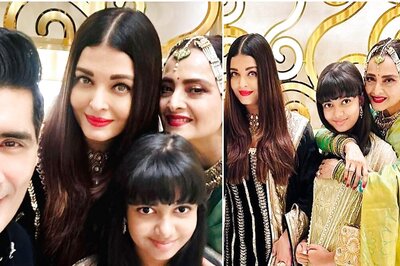
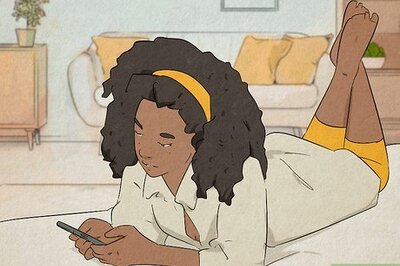
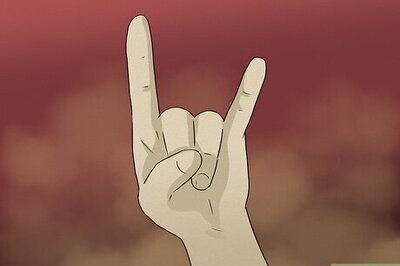
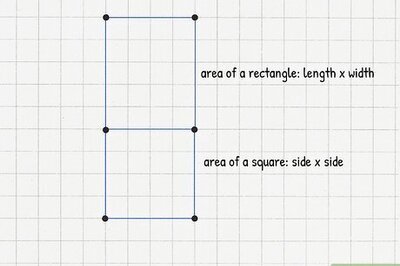
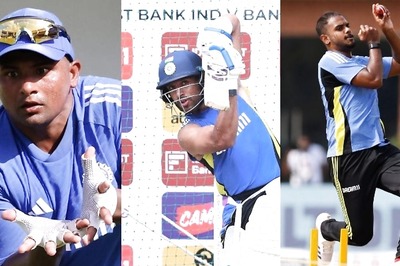
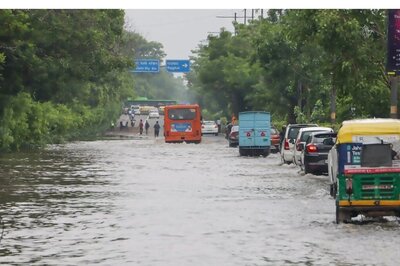
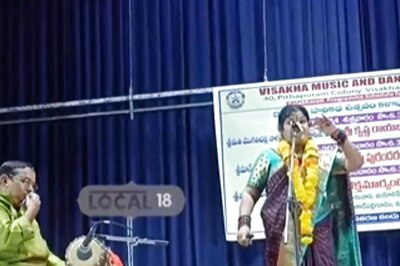
Comments
0 comment